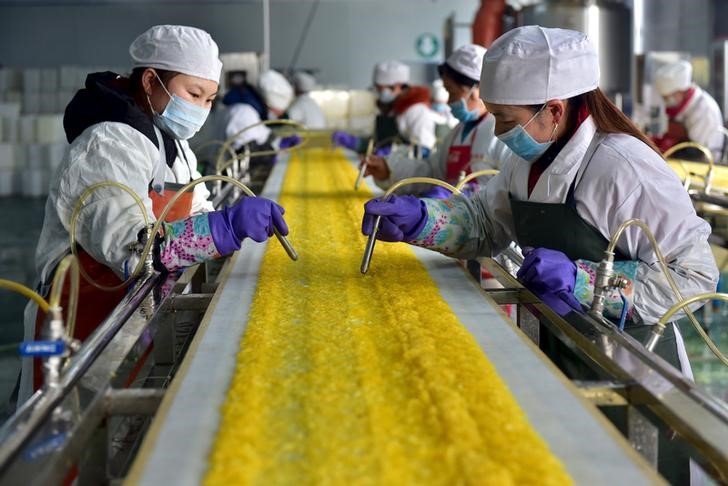BEIJING (Reuters) - Capital expenditure by Chinese companies fell to the lowest in at least five years in the first quarter, a private survey showed, highlighting persistent weakness in the economy even as the government ratchets up policy support to head off a sharper slowdown.
The quarterly survey of over 2,200 firms by China Beige Book International (CBB) also showed less hiring by companies, marking the second consecutive quarter of downward pressure on employment as executives scale back borrowing and spending.
Only 33 percent of firms reported capital expenditure growth in the first quarter, the lowest in the survey's five-year history.
The share of firms reporting capex growth has fallen by over 40 percent since the second quarter of 2014.
However, profits in the first quarter improved from the previous quarter's lows as revenue growth steadied, the survey showed.
"It's unclear whether the economy as a whole weakened again in the first quarter. But policy challenges appear to have grown, and Beijing therefore may perceive the economy as weaker," survey report authors Leland Miller and Shehzad Qazi wrote.
Economists have questioned China's official statistics for years and turn to private surveys such as the CBB and measures such as concrete, steel or electricity production to better gauge changes in the world's second-largest economy.
Vice Premier Zhang Gaoli told a high-level economic forum last week that recent data through early March showed that the economy is improving.
The latest reported data showed factory output in January and February grew at its weakest pace since 2008, while exports and imports continued to shrink, although fixed-asset investment growth beat expectations due to quickening property investment.
The survey showed just 23 percent of firms expanded their workforces in the first quarter, falling to half of what CCB reported in its inaugural report back in 2012.
"Less borrowing and spending was necessary after the 2009-10 excesses. Less hiring is a much more pointed problem," it said.
The survey's findings of growing strains on corporate China echo those of a Reuters analysis last week, which showed Chinese companies are facing their tightest liquidity crunch in a decade as customers take longer to pay their bills, forcing some into more costly and less secure borrowing to stay afloat.
Premier Li Keqiang said on Thursday that China's employment was stable in the first two months of 2016, with a survey-based jobless rate at about 5.1 percent, though the real jobless rate is widely believed to be much higher.
The government has set a growth target of 6.5 percent to 7 percent for 2016, after the economy expanded 6.9 percent in 2015 - the slowest pace in 25 years.
Beijing has pledged to make monetary policy more flexible this year even as it leans more on increased fiscal spending and tax cuts to support economic growth and cushion the pain from structural reforms.
